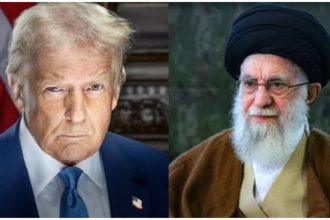Israel’s decision to announce a complete withdrawal from Gaza has been revealed to stem from high-stakes diplomatic communications involving Iran and the United States, mediated through the Sultanate of Oman.
Exclusive sources have informed Jadeh Iran that the Islamic Republic of Iran has issued a stark ultimatum to the United States: to avoid a direct Iranian military strike against Israel, the U.S. must secure a permanent ceasefire in Gaza and provide assurances that Israel will not launch a ground invasion of Rafah.
The diplomatic manoeuvre by Iran has placed significant pressure on international stakeholders, offering a stark choice: the establishment of a permanent ceasefire in Gaza and an unconditional guarantee against any Israeli military operations in Rafah in exchange for averting a confrontation between Iran and Israel.
In the backdrop of these tense international negotiations, Israel commenced a partial withdrawal from the southern Gaza Strip, particularly from the severely affected city of Khan Yunis, six months after the outbreak of conflict on October 7, which has allowed displaced residents from Rafah to begin returning to their homes, albeit amidst ruins and uncertainty.
Despite the partial retreat, an Israeli security analyst has emphasized that the conflict is far from over. The Israeli military continues to maintain a significant presence in various parts of Gaza, with Prime Minister Benjamin Netanyahu asserting that victory is within reach.
The complex interplay of military action, diplomatic negotiations, and international pressures highlights the intricate dynamics at play in the region. It underscores the profound impact of geopolitical strategies on the ground realities civilians face in Gaza.






